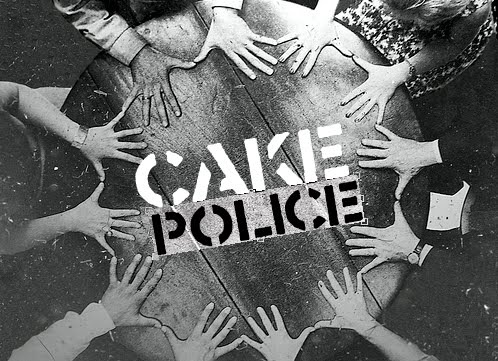FICTION: Player Piano (1952), The Sirens of Titan (1959), Cat's Cradle (1963), God Bless You, Mr. Rosewater; or, Pearls Before Swine (1965), Mother Night (1966), Welcome to the Monkey House (stories, 1968), *Slaughterhouse Five; or the Children's Crusade: A Dance with Death (1969), Breakfast of Champions; or, Goodbye Blue Monday (1973), Slapstick, or Lonesome No More (1976), Jailbird (1979), Deadeye Dick (1982), GalapC!gos (1985), Bluebeard (1987), Hocus Pocus (1990), Timequake (1997), Bagombo Snuff Box (stories, 1999)
Kurt Vonnegut is one of the few writers in this guide that I can be sure that everyone has already read (unless "everyone" includes people who cannot read, or do not read, or are very young, or speak a language into which his work as not been translated). So. Vonnegut is a science fiction aficionado, WWII vet, lover of women, pitier of the poor, cranky luddite, fun-loving doomsayer, sometime postmodernist. His books -- very personal novels disguised as allegories disguised as science fiction -- nearly always take the entire world (or more) as their canvas. Usually there is a world war, or some catastrophic event, or often genocide, or a scientific or political innovation that threatens to, or has succeeded in, destroying all that we hold dear.
Because of this, Vonnegut could be dismissed as a cranky pessimist. Because his prose is frank and uncomplicated and often very funny, he could be passed off as a "humorist." Gore Vidal once called him "America's worst writer." But despite Vidal (did you know he's related to Al Gore? And the Kennedys?) and other critics, for some inexplicable reason, Vonnegut is taken seriously (by many at least), and he is loved by millions -- even the superintellectuals like yourself.
He has written many books. Following are inadequate plot summaries of each, sometimes accompanied by trenchant commentary. After each there are notations indicating:
WWII = indicates presence of WWII facts, imagery, themes
V = book touches on senselessness of violence
P = presence of prejudice, and its deleterious effects
A = presence of apocalypse (actual), or apocalyptic imagery
SF = heavy science fiction element
$ = emphasis on issues of economic disparity
-F = loss or threatened sense of family, heritage, community
T = complaints about pervasiveness/soullessness of technology
Ar = one or more of the characters is an artist
S = presence of sex scenes
Oh, and for the readers who like a good joke now and again:
VF = book is very funny
F = book is funny
NSF = book is not so funny
Player Piano: What one man does to force change in an America lost in the wheels of progress. (Did I just write that?) A/SF/-F/T/$ -- VF
The Sirens of Titan: Establishes soon-familiar themes of the essential brutality of man and the futility of attempting change. A/V/SF/T -- VF
Mother Night: A former Nazi radio propagandist and his life of depressed exile in New York's Greenwich Village. Perhaps Vonnegut's most straightforwardly told novel. P/S/F -- NSF
Cat's Cradle: One of his most successful and effectively apocalyptic books -- not to give away the ending -- about a substance that freezes, in a death-inducing sort of way, anything containing water. A/SF/T -- F
God Bless You, Mr. Rosewater: About a man who gives millions to poor and pathetic people, this book is not that funny and disappointingly slight. Also contains a vicious portrayal of a gay man, for no discernible reason. A/$/-F -- NSF
Welcome to the Monkey House: A collection of short stories. WWII/P/A/SF/-F/$T/Ar/S -- F, VF, NSF (depending on the story)
Slaughterhouse Five: Vonnegut's most famous book and usually the starting point for Vonnegut inductees, and rightfully so. It crystallizes the author's passions and fears and addresses the pivotal moment in his life: as a WWII POW in Dresden, he witnessed the merciless, earth-leveling Allied bombing of the city. The protagonist is also abducted by aliens and forced to breed with a gorgeous starlet. WWII/V/P/A/SF/S -- VF
Breakfast of Champions: Vonnegut's version of a writer writing about writing, incorporating a number of his alter egos -- Kilgore Trout, et al. Big fun for fans of Vonnegut-as-clown-faced deconstructionist. A/SF/$/T -- VF
Slapstick: An homage to Vonnegut's late sister (whose three sons he raised) about two exceptional siblings. The book posits that Americans suffer from the erosion of the extended family. P/A/SF/-F/$/T -- VF
Jailbird: In which the world's power and wealth resides with an old woman who chooses to be homeless. A/$/T/-F -- F
Deadeye Dick: About a boy who inadvertently kills a pregnant woman while playing with a gun. A treatise on violence, heritage, prejudice. WWII/A/V/-F/P/$/Ar -- F
Galápagos: Speculates that if man were stranded on those islands, he might evolve in a way that would mean less pain for humanity and planet. As pessimistic as Vonnegut gets. V/A/SF -- NSF
Bluebeard: Largely a complaint about the absurdity and impersonality of modern art -- particularly targeting Abstract Expressionism. WWII/P/V/$/AR -- F
Hocus Pocus: A biblical-scale apocalypse takes place in 2001: more realistic than most of his work and very dark. V/A/SF/T -- NSF
Timequake: A rambling essay-cum-novel about not finishing a book, featuring familiar anecdotes, complaints, and visits from old characters like Kilgore Trout. Satisfying for fans, though unsettling, for in it, he claims that it will be his last book. WWII/V/P/A/SF/$/T -- VF
So, Vonnegut is good. If you like books, and like to read them even if they are easy to read and frequently funny, you will like the work of Kurt Vonnegut, a writer.
Also: He has a mustache.

He gave Mother Night an F and NSF?? I love that book though..
ReplyDelete